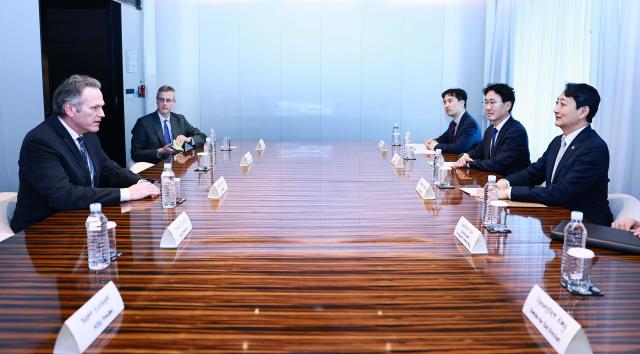
SEOUL, March 31 (AJP) - Alaska Governor Mike Dunleavy has stepped up efforts to persuade South Korea to participate in his state’s liquefied natural gas (LNG) project, using a recent visit to Seoul to underscore the economic and strategic stakes involved.
Speaking to local and international media, Dunleavy framed South Korea’s potential purchase of Alaskan LNG as a pivotal factor in reducing the U.S.-Korea trade deficit, while also presenting the project as an opportunity for Korean firms to supply equipment and materials.
His comments hinted at broader geopolitical undercurrents, suggesting that the project’s fate could influence upcoming tariff negotiations between Seoul and Washington.
Despite Dunleavy’s overtures, no binding commitments were secured during his visit. Neither South Korean government agencies nor energy companies announced new contracts or agreements related to the $44 billion Alaska LNG project, a venture that remains in its early stages of development.
As the world’s third-largest LNG importer, South Korea faces a complex calculus in weighing potential participation.
While an investment in Alaskan LNG could strengthen Seoul’s hand in trade negotiations with Washington, it also poses significant financial risks.
The project has yet to enter full-scale construction, and uncertainties persist over its investment structure, production costs, and pricing. Industry experts note that past withdrawals by global energy firms — including ExxonMobil and BP — reflect longstanding concerns about profitability and market viability.
Even if South Korea were to commit to Alaskan LNG, deliveries would not begin for several years, according to government officials briefed on the matter.
The state-owned Korea Gas Corporation (KOGAS) is already reassessing its supply mix following the expiration of long-term contracts with Qatar and Oman, leaving open the question of whether Alaska can fit into Seoul’s evolving energy strategy.
Complicating matters further is the political uncertainty in South Korea following the impeachment of President Yoon Suk Yeol. With no clear leadership to steer major policy decisions, officials remain cautious about embarking on a high-stakes overseas energy investment.
“For Korea, staying out of the Alaska LNG project raises concerns about trade disadvantages with the U.S., but stepping in carries significant risks,” said an industry source, speaking on the condition of anonymity. “The government and corporate stakeholders will need to carefully weigh their options.”
Copyright ⓒ Aju Press All rights reserved.


View more comments